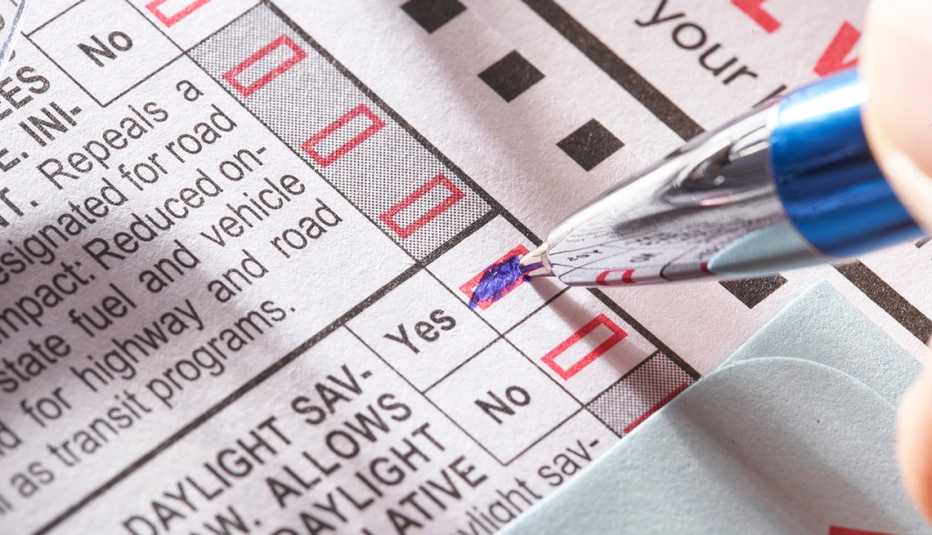AARP Hearing Center


Voters did more than pick winning candidates on Election Day. In states across the country they chose new policies that affect taxes, families, marijuana use and voting rights.
This year, 129 measures were on ballots, according to Josh Altic, Ballotpedia's expert on the referendum process. Eighty-nine of them were approved and some others were still too close to call. Measures can get on a ballot via a state legislature and when citizens or advocacy groups gather enough signatures to qualify for a vote of the electorate.
During primary elections last summer, Missouri and Oklahoma citizens voted to expand Medicaid. Most states have expanded Medicaid eligibility under the Affordable Care Act through a vote by the legislature. Only 12 states now have not expanded their programs.
Here a look at some measures that were decided this fall.
Caregiving and family leave
Colorado voters overwhelmingly passed a trust fund to cover family leave benefits. Workers will pay into the fund through payroll taxes and then be eligible to take paid time off for illness or to care for a loved one. A worker earning $1,000 a week and their employer will each pay about $4.50 a week toward the trust fund. Workers who need the benefit would be eligible for up to $1,100 a week in benefits beginning in 2024.
The landslide vote in Colorado was testament to how important sick and family leave are in the middle of a pandemic, said Elaine Ryan, AARP vice president of government affairs. “People are choosing between caring for their mom and losing their job. Measures like family leave are a powerful recognition and support for families who are juggling family responsibilities with work responsibilities."
Taxes and personal finance
"We saw a range of ballot measures that will significantly change financial outcomes for millions of people,” Ryan said.
In Nebraska, voters passed an initiative to cap payday loan interest rates at 36 percent. These loans offer quick cash infusions at exorbitant rates. Ryan says the average predatory loan rate in Nebraska is 400 percent. “Not only are they in need financially, but they go into a deeper financial hole they never get out of,” Ryan said of consumers who turn to these loans.
Florida voters agreed to raise the minimum wage to $15 an hour by 2026 from the current $8.56. AARP did not take a position on the measure, Ryan said, but the gradual increase is likely to be “a significant boost to their earning power” for lower-wage workers.
Arizona voters decided to add a 3.5 percent income tax surcharge on high-income earners. The tax increase will apply to income over $250,000.

































































More on Politics
How Do Election Recounts Work in Battleground States?
In a tight race, some vote recounts happen automatically, while others must be requestedWhen Will Your Vote Be Counted?
Depending on your state and how you cast your ballot, it could be before, on or after Election DayTest Your Knowledge of the Electoral College
Are you a master of how a president is chosen?